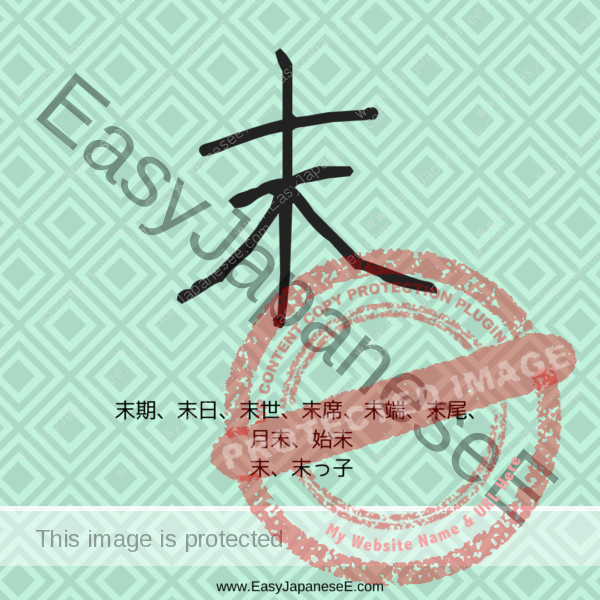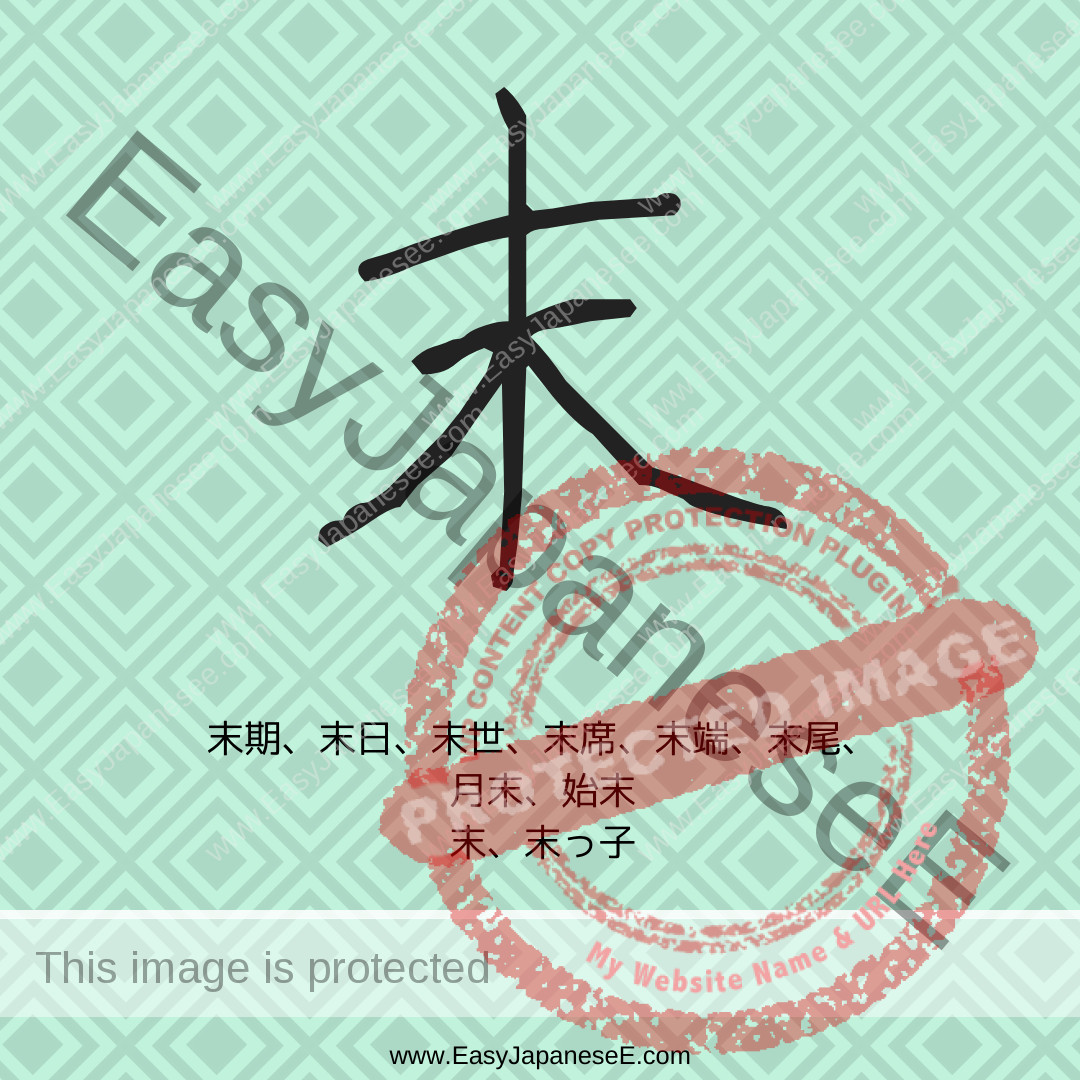Today’s #kanji is #末, which is a logogram consisting of 木 (a tree) and a line in the upper part, suggesting an upper part of a tree.

Meaning: the end, a tip, peripheral
Reading: マツ(マッ)、バツ(バッ)、すえ(ずえ)
末期(マッキ): [noun] the last period, the last stage
ガンの末期 the terminal stages of cancer
末日(マツジツ): [noun] the last day
三月末日(サンガツマツジツ) the last day of March
末世(マッセ、マツセ): [noun] a degenerate age, a corrupt age
末席(マッセキ/バッセキ): [noun] the lowest seat, the seat farthest from the front
末端(マッタン): [noun] the (tail) end, the termination (of a pillar)
末尾(マツビ): [noun] the end, the close, the tail
末尾2ケタの数字: the final 2 digits
月末(ゲツマツ/つきずえ): the end of the month
三月末(サンガツマツ): the end of March
~を始末(シマツ)する: [vt] to manage, to deal with …, to dispose of…, to attend to …
末(すえ): [noun] the end, the close; the future; a descendant
末(すえ)っ子(こ): [noun] the youngest in a/the family, the youngest child
Don’t confuse 末 with 未. The length of a line makes a rather big difference in Kanji.

